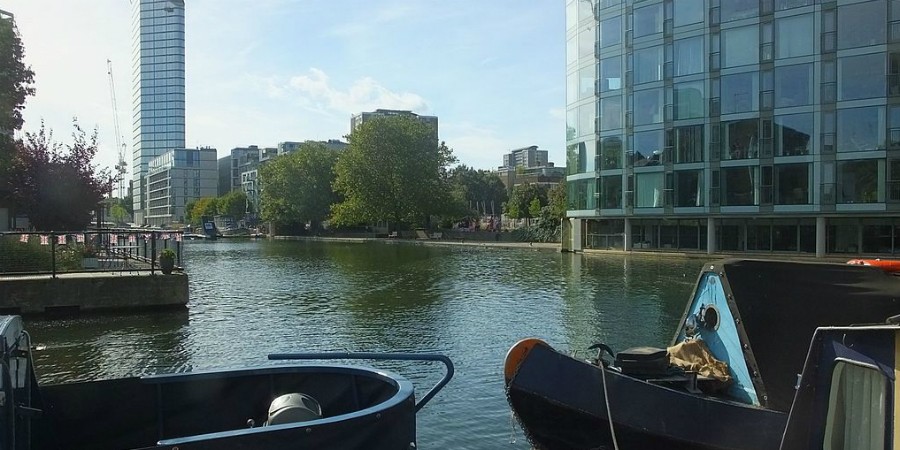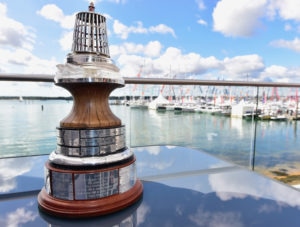Eco-mooring zone in development in Islington

With Islington Council, the Canal & River Trust is creating an ‘eco-mooring zone’ for visiting boats between York Way and Danbury Street on the Regent’s Canal.
This comes as the issue of air quality gains greater public attention, with both local and national government increasingly committed to measures to reduce air pollution in cities.
Research from the Trust shows that, while the impact of boat emissions is minimal in comparison to pollution from road traffic, the people most at risk from engine fumes are boaters themselves. Using cleaner sources of energy, like electric charging points, will benefit boaters’ health.
While living on the waterways can be a sustainable and environmentally friendly choice, in some busy areas the impact of engine noise and fumes can affect both waterside residents and other boaters. Boaters live close to nature and many are keen to embrace ‘green’ initiatives like solar panels and clean fuel. The new ‘eco-mooring zone’ will enable boaters to reduce their reliance on using their engines for energy and to embrace a greener way of life.
With grant funding from Defra secured, alongside their own contributions, Islington Council and the Trust will now work together to implement the scheme, including defining the area the eco-mooring zone will cover, with plans for the site to go live in October 2019. There will then be a transition period of a further two years, during which there will be no running of diesel engines or generators permitted on site, and a progressive encouragement for boaters mooring here to move from burning of solid fuels to electricity for their heating and cooking.
Embracing green initiatives
Ros Daniels, Director for London and the South East, says: “Many boaters are keen to embrace green initiatives and often have already established a smaller environmental ‘footprint’ as they pursue a low impact way of life. However, some urban areas can present particular challenges.
“In Islington, the ‘funnel’ effect created by the canyon around the Islington Tunnel section of the Regent’s Canal means that noise and fumes can have a greater impact than in other areas. The new eco-mooring zone will significantly reduce these problems, as well as giving boaters the opportunity to increase their use of mains electricity as an energy source.
“While the impact of canal boats on air quality is minimal when compared to other sources of pollution, we appreciate that the local effects can be perceived as a problem and we are pleased to work with Islington Council and, with Defra’s support, to introduce this new facility over the next year.”
Cllr Claudia Webbe, Islington Council’s Executive Member for Environment and Transport, says: “Islington is the most densely-populated borough in the country and the boating community are an important part of that vibrant mix. At the same time there are high levels of air pollution across Islington, making this a very serious issue for every one of us – it is literally a matter of life and death.
“The potential for bringing cleaner power to the canal is an exciting and ground-breaking development that will surely benefit boat owners and all those who use and enjoy the canal and towpaths, as well as neighbours in the immediate surroundings.
“While recognising the challenges for some boat owners in leaving diesel generators and solid fuel burners behind in favour of electricity, the benefits for all of using a cleaner, greener fuel are clear.”
Commitment to eco-mooring
During the transition period there will be ongoing work with the boating community to identify the support required to move fully to electrical power. Islington Council and the Trust will act together to support this, including offering training and technical advice.
Towards the end of the transition period, in 2021, there will be an evaluation of the progress made ahead of the implementation of the full restrictions planned for the eco-mooring zone. This will include looking at the wider availability of electric charging infrastructure across London’s waterways, the impact of tighter restrictions on boaters and the use of these moorings, on local air quality measures, and the wellbeing of local residents.
The commitment to an eco-mooring zone is part of the Trust’s London Mooring Strategy, which was developed in consultation with boaters to address the unique challenges, and opportunities, of boating in the capital.










